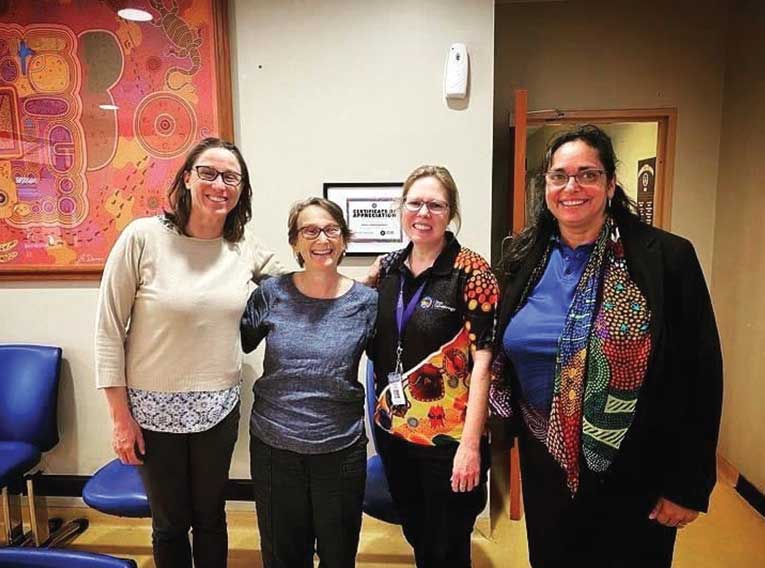A ground-breaking project helping to better screen for and manage gestational diabetes in rural Western Australia, which Diabetes Research WA has financially supported, has received a $3.2
million boost.
Led by Professor Julia Marley from The University of Western Australia’s Medical School and the Rural Clinical School of WA, the ORCHID Study – which aims to simplify screening and improve management of high blood glucose levels in pregnancy – has been awarded the fresh funding from the Medical Research Future Fund.
In welcoming the financial boost, Professor Marley said diabetes disproportionately impacted the lives of Aboriginal people, with predisposition beginning in pregnancy.
“Hyperglycaemia or high blood glucose in pregnancy increases babies’ risk of birth defects and being born premature and by caesarean, as well as being born larger or smaller than optimum, with low blood glucose levels, and difficulty breathing,” Professor Marley said.
“Babies have increased risk for obesity and altered glucose metabolism in childhood and for future diabetes, and mothers have increased risk for future diabetes and cardiovascular disease – it is a significant and far-reaching health issue, particularly affecting remote and rural communities.”
Ms Erica Spry, Bardi Jawi traditional owner and co-lead from the Kimberley Aboriginal Medical Services and the Rural Clinical School of WA, said the new funding would allow the project to implement, evaluate and refine the alternative screening that earlier phases of this study identified for detecting high blood glucose in pregnancy at regional, state and national levels.
“The ORCHID Study is to benefit all ethnicities, especially our Aboriginal women, and it is important to acknowledge all the women across WA who have participated in the ORCHID Study, we thank you all,” Ms Spry said.
“With this grant, we will begin sharing sugar management tools to help assist Aboriginal women with managing their high blood glucose levels in pregnancy and work on ways to support the family of the expecting mums. This funding will help us bring benefits back to our community members. As already proven effective, we’ll use three-way learning between Aboriginal community members, health providers and researchers to co-design and trial self-management strategies for high blood glucose in pregnancy. We want to help and assist empower Aboriginal women and their families to make positive lifestyle choices aimed at improving birth outcomes and health for subsequent pregnancies and prevent or delay progression to chronic disease.”
Diabetes Research WA executive director Sherl Westlund said she was thrilled the group had been able to support the work, with a $60,000 grant in 2020, to get to this point.
“As a charity, we’re focused on ensuring promising West Australian diabetes research can be funded so that it can progress to making a real difference on the lives of those who live with diabetes and this project is a wonderful example of that,” she said.
“We look forward to watching the ORCHID Study’s further positive impacts unfold with this fresh funding boost and are thrilled to be part of it.”
The Medical Research Future Fund is a $20 billion long-term investment supporting Australian health and medical research. The fund aims to transform health and medical research and innovation to improve lives, build the economy and contribute to health system sustainability.
The ORCHID Study is a collaboration between the Rural Clinical School of WA, Kimberley Aboriginal Medical Services and their member services, Diabetes WA, WA Country Health Services and Diabetes Research WA.
Media contact: Natalie Caudle, 0407 984 435, natalie@capturemedia.com.au

